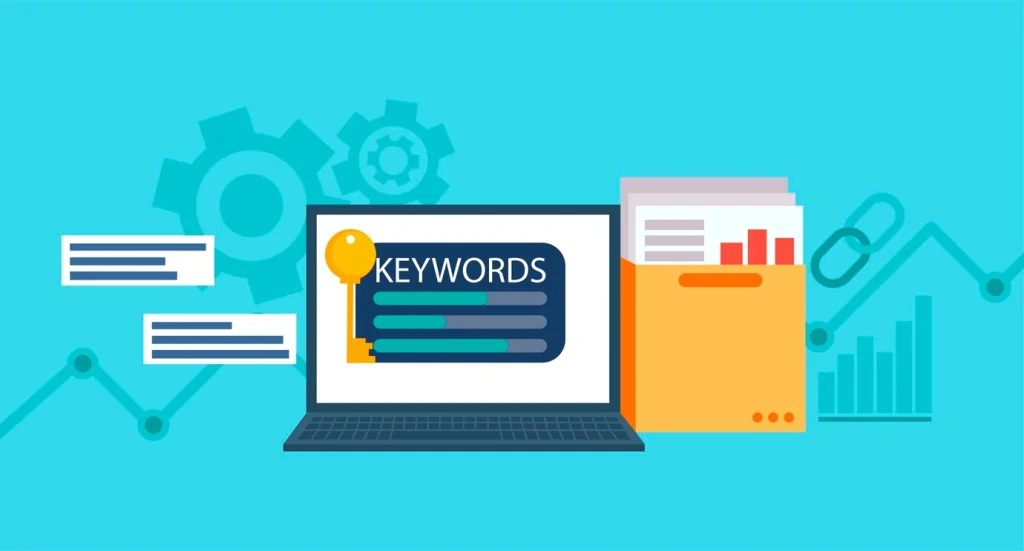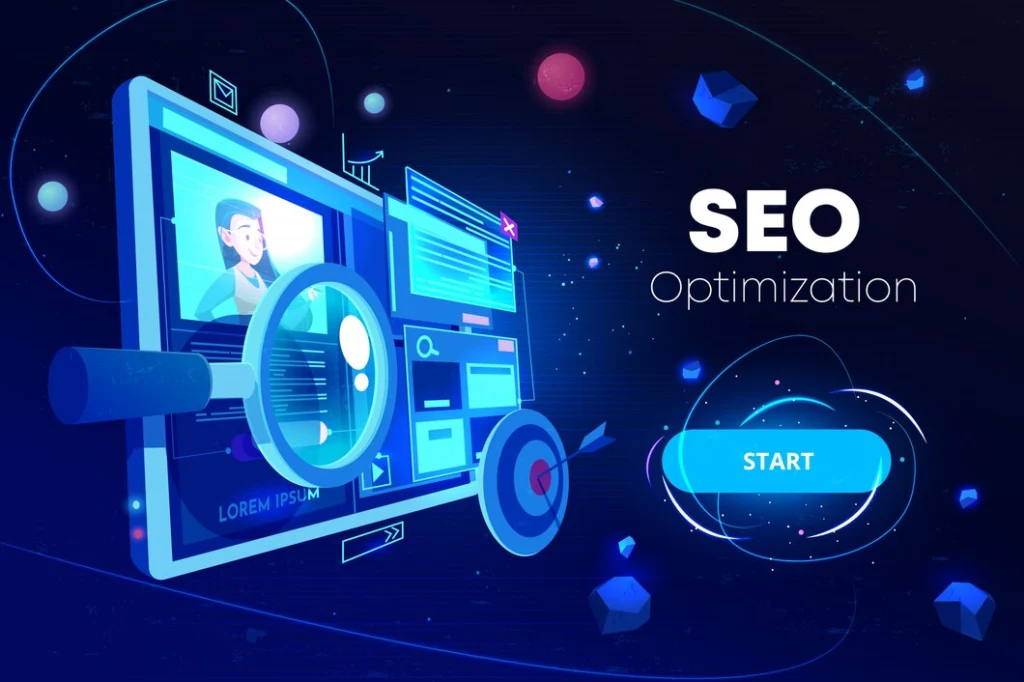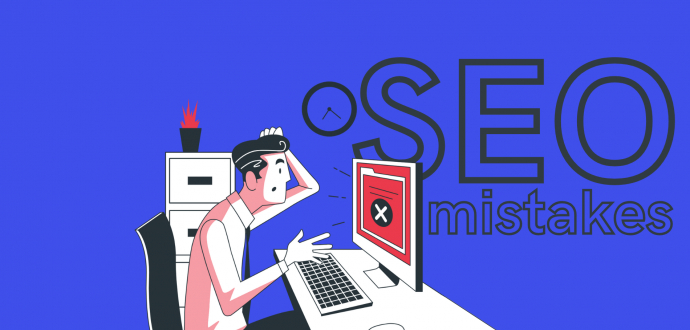149
Search Engine Optimization (SEO) is one of the most crucial skills for anyone starting a website. It’s the difference between being found on Google and being buried on page 10 of search results.
Unfortunately, many new website owners dive into content creation and design without fully understanding SEO fundamentals. This often leads to costly mistakes that hurt their search rankings, visibility, and ultimately, revenue. In this guide, we’ll explore the top 10 SEO mistakes beginners make, why they matter, and how you can avoid them to set your site on the right track.

 See also
See also

Table of Contents

1. Ignoring Keyword Research
The Mistake: Many beginners start writing blog posts or product pages without researching what people are actually searching for. They might choose topics based on personal interest rather than search demand. Why It’s a Problem: If no one is searching for your chosen keywords, your content will get little to no organic traffic. On the other hand, if your keywords are too competitive, you may struggle to rank against established websites. How to Avoid It:- Use keyword research tools like Google Keyword Planner, Ahrefs, or Ubersuggest.
- Target long-tail keywords (e.g., “best budget DSLR cameras for beginners” instead of “DSLR cameras”).
- Focus on search intent — understand whether users want information, a product, or a comparison.
2. Not Optimizing On-Page SEO
The Mistake: Some site owners believe simply publishing content is enough for Google to understand and rank it. They overlook on-page SEO elements like title tags, meta descriptions, and header structure. Why It’s a Problem: Without optimization, search engines may not fully understand your page’s topic, making it harder to rank. How to Avoid It:- Use your main keyword in the title tag, H1 heading, and early in the content.
- Include relevant keywords naturally throughout your article (avoid keyword stuffing).
- Optimize your meta description to encourage clicks.
- Use H2 and H3 subheadings to structure your content for both readers and search engines.
3. Overlooking Mobile Optimization
The Mistake: Some website owners design sites only for desktop users, forgetting that over 60% of searches happen on mobile devices. Why It’s a Problem: Google uses mobile-first indexing, meaning it primarily looks at the mobile version of your site for ranking. A poor mobile experience can hurt your SEO and increase bounce rates. How to Avoid It:- Use a responsive design that adjusts to different screen sizes.
- Test your site on multiple devices.
- Use Google’s Mobile-Friendly Test tool to identify issues.
4. Slow Page Loading Speed
The Mistake: Beginners often overload their sites with large images, unnecessary plugins, and heavy themes that slow down loading times. Why It’s a Problem: Google considers site speed as a ranking factor. Users also abandon pages that take more than 3 seconds to load. How to Avoid It:- Compress images using tools like TinyPNG or ShortPixel.
- Use a Content Delivery Network (CDN) like Cloudflare.
- Minimize the number of plugins and scripts.
- Choose a fast hosting provider.
 See also
See also
- Hostinger Review 2025: Is It the Best Budget Hosting?
- Hostinger vs GoDaddy: Who Offers Better Value?
- Hostinger Uptime & Speed Test (2025): Real Data from My Website1
- Hostinger vs Namecheap: Which One Should You Choose?
5. Not Using Internal Linking
The Mistake: Many beginners don’t link their new articles to older ones or fail to create a logical internal linking structure. Why It’s a Problem: Internal links help search engines understand your site’s structure and pass “link equity” between pages. They also keep visitors on your site longer. How to Avoid It:- Link to related articles or product pages naturally within your content.
- Use descriptive anchor text (e.g., “best SEO tools for beginners” instead of “click here”).
- Create pillar pages that link to related subtopics.
6. Forgetting About External Links
The Mistake: Some new site owners avoid linking to other websites because they fear it will drive visitors away. Why It’s a Problem: Linking to credible sources builds trust with your readers and signals to Google that you’re referencing authoritative information. How to Avoid It:- Link to high-quality, reputable sites when citing facts or statistics.
- Use nofollow tags for affiliate or paid links.
- Ensure external links open in a new tab.
7. Neglecting Technical SEO
The Mistake: Beginners often ignore the technical side of SEO — XML sitemaps, robots.txt, schema markup, and HTTPS. Why It’s a Problem: Technical SEO ensures search engines can crawl, index, and understand your site. Without it, even great content may not rank. How to Avoid It:- Set up Google Search Console to monitor crawl errors.
- Create and submit an XML sitemap.
- Use HTTPS (SSL certificate).
- Add schema markup to improve rich snippets.
8. Ignoring Analytics and Tracking
The Mistake: Some website owners “publish and pray” without tracking how their site performs. Why It’s a Problem: Without data, you can’t see what’s working or where you need improvement. How to Avoid It:- Install Google Analytics to track traffic, user behavior, and conversions.
- Use Google Search Console to monitor keyword rankings and click-through rates.
- Regularly review reports to refine your SEO strategy.
9. Not Building Backlinks
The Mistake: New website owners sometimes focus only on on-page SEO and neglect off-page SEO, especially backlink building. Why It’s a Problem: Backlinks remain one of Google’s top ranking factors. Without them, it’s hard to compete with established sites. How to Avoid It:- Reach out to other site owners for guest posting opportunities.
- Create high-value content worth linking to (original research, in-depth guides).
- Share your content on social media and online communities.
10. Expecting Instant Results
The Mistake: SEO is a long-term game, but many beginners expect results in a few days or weeks. Why It’s a Problem: When results don’t appear quickly, some people give up entirely, missing the benefits of long-term SEO growth. How to Avoid It:- Be patient — most SEO changes take 3–6 months to show significant results.
- Keep publishing high-quality, optimized content consistently.
- Focus on building a brand, not just rankings.

Conclusion
Avoiding these 10 common SEO mistakes can save you months of frustration and missed opportunities. To recap:- Do proper keyword research.
- Optimize your on-page SEO.
- Make your site mobile-friendly.
- Improve loading speed.
- Use internal linking.
- Include external links to credible sources.
- Focus on technical SEO.
- Track your performance.
- Build high-quality backlinks.
- Be patient and consistent.

